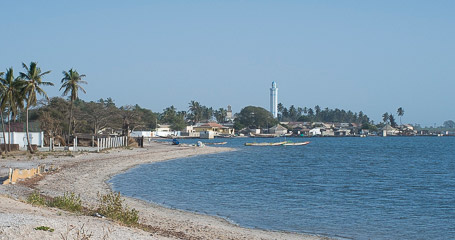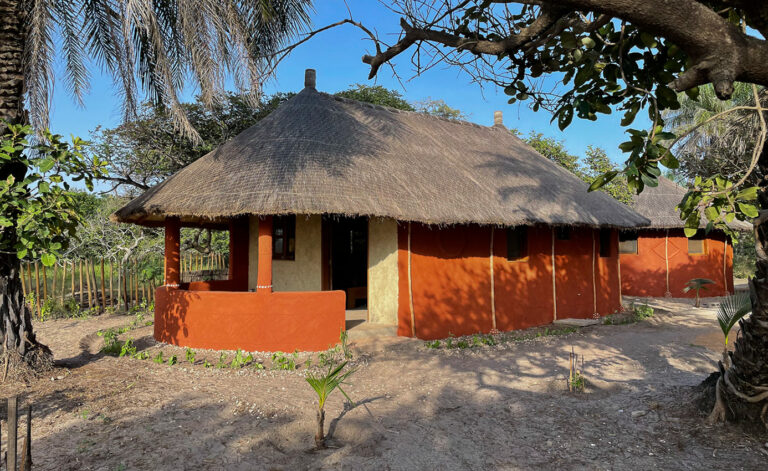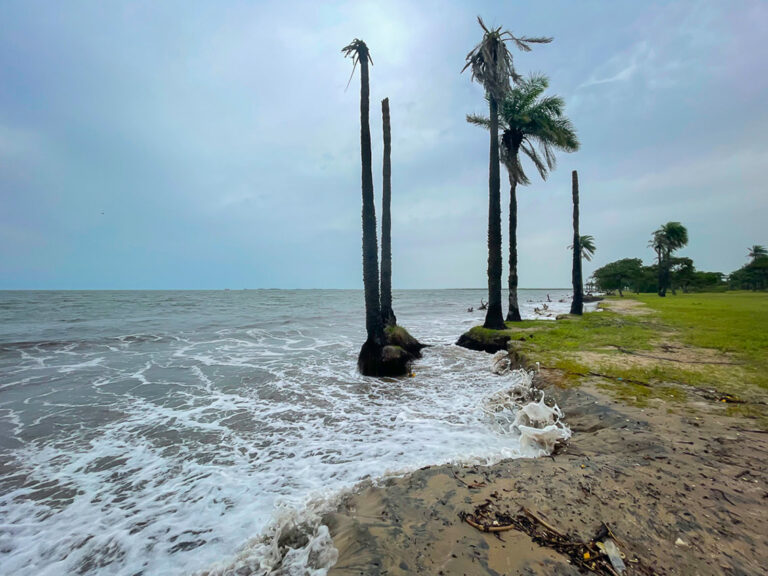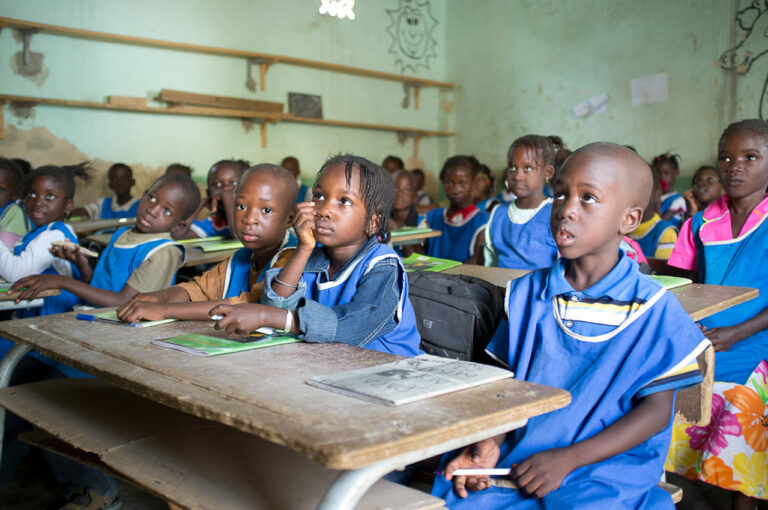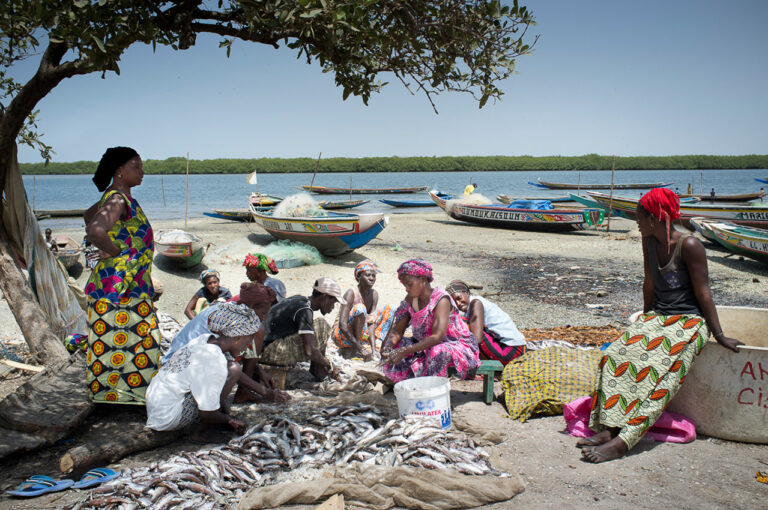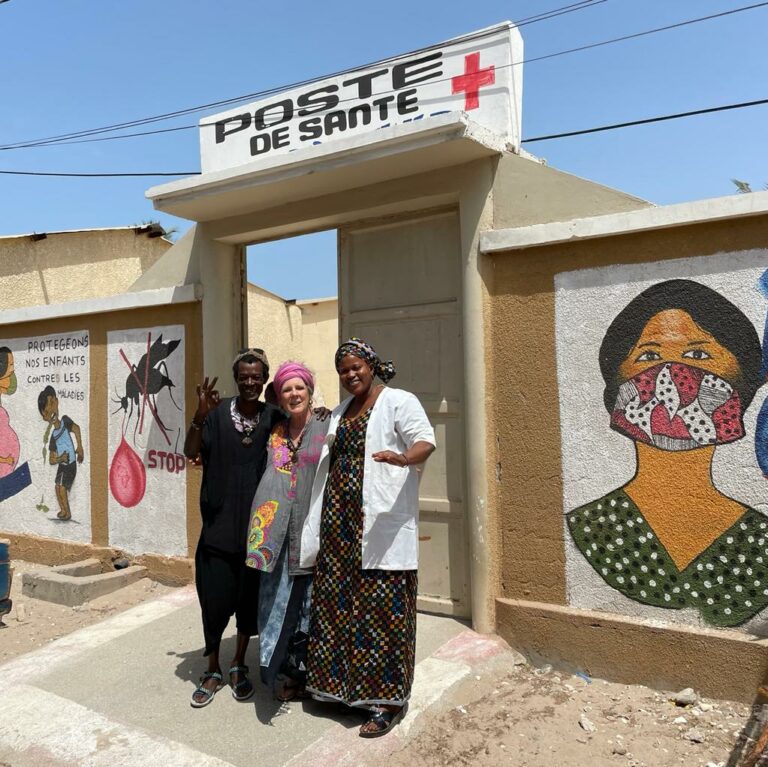Our actions
Responsible Tourism and Solidarity
To establish a regional network of responsible tourism and solidarity, to develop professional training opportunities in responsible tourism and to promote ecotourism in the Saloum Delta region.
What do we mean by responsible tourism or “ecotourism”? The International Ecotourism Society has developed 8 principles of ecotourism :
- Minimize physical, social, behavioral and psychological impacts.
- Build environmental and cultural awareness and respect.
- Provide positive experiences for both visitors and hosts.
- Provide direct financial benefits for conservation.
- Generate financial benefits for local people and private industry.
- Provide memorable interpretive experiences for visitors that help educate them about the political, environmental, and social climate of host countries.
- Design, build and operate low-impact facilities.
- Recognize the rights and spiritual beliefs of local people and work in partnership with them to create empowerment.
Fii Laa Tekkee explores actions with local partners to develop and promote ecological and responsible tourism as an economic sector in the Saloum Delta region, promoting the unique culture and environment of this UNESCO Biosphere Reserve and World Natural Heritage Site:
l. Establishing a cooperative network for responsible tourism.
In collaboration with the Begue Lodge project, Fii Laa Tekkee is reaching out to other lodges in the Saloum region to establish a cooperative network. This network will serve to :
- Share information on best practices and provide mutual assistance in adhering to the principles of responsible tourism.
- Speak with one voice to defend the interests of the regional responsible tourism sector and local populations, particularly to combat mass tourism and to safeguard the region’s rank as a UNESCO Man and Biosphere region and World Natural Heritage region.
- Develop tourist circuits through this collaborative network that allow tourists to experience a variety of sites and villages in the Saloum region.
ll. Develop vocational training programs for Saloum residents to become entrepreneurs, managers and guides in the regional tourism sector and undertake fundraising activities to finance projects.
In collaboration with other NGOs, associations, projects, philanthropic foundations and regional/national educational institutions, establish vocational training programs to develop the local workforce needed for the responsible tourism sector.
Needs include responsible tourism and ecolodge promoters, managers, staff, and guides for cultural exchanges and nature tours focused on the unique ecosystem of the Saloum Delta, particularly ornithology and mangrove ecology.
Coastal Erosion
Support actions to combat coastal erosion and to promote reforestation and responsible land use practices appropriate to local conditions and the culture of the barrier islands of the Delta.
The Saloum barrier islands has experienced rapid and intense erosion (5 to 10 meters / year) since the 1987 breakup of the Sangomar peninsula that once protected the islands in this region.
A 2012 UN report estimated that a one-meter rise in sea level along this coastal area would directly expose nearly 200,000 people to the combined climate impacts of erosion, saltwater intrusion into groundwater supplies, salinization of water used for agricultural irrigation, and desertification, jeopardizing livelihoods and economic activities accounting for 14% of GDP.
UNESCO, UNDP, the World Bank, the New Partnership for Africa’s Development (NEPAD), and other international organizations have established programs in this region over the past decade to provide scientific and technical advice to decision makers on how to combat these multiple impacts. The World Bank’s West Africa Coastal Area Management (WACA) program works directly with government officials and residents to encourage collaborative action along the coast and to mobilize public and private funds to address the environmental, social, and economic challenges of coastal erosion and climate impacts.
Fii Laa Tekkee works with partner organizations and experts to provide scientific and technical expertise to tailor erosion mitigation measures to the specific needs of the Dionewar coastal area.
The association is working with local Marine Protected Area authorities, French and regional experts (Patrick Chevalier and GIZC, DBS Traitement), and is partnering with the Nebeday Association, which is working on coastal erosion projects in other parts of the Senegalese coast, to install test projects on the northern coast of Dionewar.
Education - Awareness - Training
Support education, training and awareness-raising activities on sustainable development tailored to local interests; establish vocational training programs to support the local responsible tourism sector.
The Saloum Delta is both a UNESCO Biosphere Reserve and a World Heritage Site. Local education focused on appreciation and protection of this globally significant ecological system is essential to its preservation.
Fii Laa Tekkee has initiated a collaboration with the Sandwatch Foundation. Sandwatch provides a framework for students, teens, and adults, with the help of their teachers and community members, to work together, scientifically investigate the problems and conflicts facing their beaches and environment, and implement viable methods to address them.
The project provides a hands-on approach to aspects of learning and empowers citizens to take action for positive environmental and social change. (see also : UNESCO Sandwatch program)
As part of its responsible tourism efforts, Fii Laa Tekkee is also exploring the development of vocational training programs for Saloum residents to become entrepreneurs, managers and guides in the regional ecotourism sector. (See Responsible Tourism and Solidarity actions)
Documenting Impacts: Climate and Society
Through film and photojournalism, document the challenges faced by rural people in the face of economic, social, and environmental pressures, as well as solutions that offer hope.
Through film and photojournalism and inspired by the Migrants As Messengers program, Fii Laa Tekkee will document the challenges of rural Dionewar residents as they struggle to adapt to multiple economic, social, cultural and environmental stresses.
Through interviews and multi-year profiles of individuals selected from a range of ages and social conditions, the Association will document how changes in the environment, economy, and society impact lives, exploring issues such as food and water shortages, unemployment, access to education and health care, migration, the status of women and girls, philosophy and worldviews. Fii Laa Tekkee will also document these rural populations in the context of their rich local culture and traditions and explore how local residents perceive outside influences and assistance programs.
Local Economic Interests
To help farmers, fishermen, artists and artisans market and sell their traditional handicrafts according to fair trade principles.
Fii Laa Tekkee will work with other associations, NGOs and economic interest groups to help farmers, fishermen, and local artists and artisans sell their products through the responsible tourism network in the region.
The Association will work to promote these products in the lodges, cottages, and hotels of the responsible tourism network by encouraging the use of locally made furniture and decorations and by making available local food, arts, and crafts for purchase in the network’s establishments.
The Association will explore opportunities to collaborate with other associations and cooperatives to support rural artists and artisans by offering online sales opportunities.
Fii Laa Tekkee will also work to raise awareness and funds to support businesses and social entrepreneurship that stimulate the local economy while preserving the environment, especially on issues of plastic recycling.
Hygiene & Health
Work with local health care providers to identify ways to improve health care services for the residents of Dionewar, Falia and Niodior.
As in many rural areas, the only health care service in Dionewar is a dispensary staffed by a trained nurse and a midwife.
This clinic has first aid supplies and basic medicines. More serious problems require transportation to the hospital in Niodior, or, for the most serious cases, to hospitals on the mainland. There is no adapted ambulance service. The pirogues connecting the islands to the mainland do not operate on a regular schedule and are ill-equipped to transport sick or injured people.
Sanitation services such as running water and sewage treatment are not available in many areas. The coastal areas of Sine Saloum and Casamance have shallow water tables and regular droughts; the current individual sewage collection system poses a risk of seepage and groundwater contamination.
Most islanders have no health care and must pay for their medical expenses out of pocket, which often forces them to borrow from family and friends to deal with emergencies and not treat less urgent conditions. This is an area of the world where cholera outbreaks are not uncommon and where people die from infections of untreated wounds.
Fii La Tekkee’s actions include:
- working with local health authorities to bring basic medical supplies and equipment for the Dionewar clinic.
- working with its partner project, the Begue Lodge, and local government officials to fund private health care for the lodge’s employees, the artisans who helped to build it, and the neediest families in the village. Through a regional pilot project, private insurance is made available for approximately 4 euros per year per person.
The Association is currently studying :
- the modalities for the purchase of equipment and an ambulance-pirogue for Dionewar, Falia and Niodior.
- establishing sponsorships for the poorest families to allow them to have health insurance.

